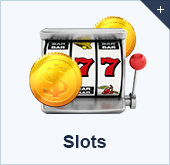Top Online Poker Tips to Improve your Game
For all you online poker beginners, this page contains plenty of information which will help you to to take your poker playing to the next level. From controlling your bankroll through to leveraging your position for maximum effect, this really is the ultimate tip sheet for those looking to succeed in the world of online poker.
On this page you will find the following information:
- How to bet at poker
- How to manage your poker bankroll
- Poker bluffing tips
Practice Hard
It doesn't matter what you want to get good at in life, there is one thing that you absolutely have to do: work hard. The best players in the world didn't become successful overnight, but instead they put in huge amounts of work every day, learning their craft. In fact, it isn't unusual to see some professional players sat at the poker table for hours and hours on end, trying to perfect a particular part of their game.
So, if you want to improve your game, the first thing to understand is this: if you're not prepared to sit and play for long stints, you will not be able to progress at all.
Don't Overstretch Yourself
Poker can be played at many different levels, from tiny micro stakes games through to massively expensive tournaments. If you're just starting out in the world of online poker, you might be tempted to miss out a couple of the rungs on the ladder, and head straight to the higher stakes games. This would be a mistake. The reason for this is simple: the higher the stakes, the better the players.
So, trying to play at a level that is too high will only lead to you losing your money and becoming dejected at the thought of playing online. Not squandering all of your chips is an important part of online poker, as you'll see later on in the section about bankroll management.
Get into the right Poker position
To a new player, position might not seem to be all that important, however it is actually one of the most important things to consider when playing. This is because those in later position (i.e. those acting later in the hand) will have a huge advantage over those in earlier position, as they'll be able to survey the action before they decide what to do.
If you're in early position, you'll essentially be betting blind, unaware of the cards that another player has, and this can lead to some pretty large losses. Of course, don't pass up the opportunity to play premium hands if you're in early position – just be more selective with the hands that you do decide to play.
Understand Poker Odds
Odds play a massive role in online poker, meaning that you absolutely must understand them. If you don't, you'll find yourself constantly making bets that won't pay off in the long run, or failing to call bets that could prove to be profitable.
Odds might seem complex at first but, like many things in life, the more you use them, the easier they will become to understand. You'll be able to find out about calculating the odds in poker when you read through our article on online gambling odds.
Never Play Tired
Do you find that your late night poker sessions don't tend to go too well? There's a reason for this – you're tired, and your brain simply isn't able to make the good decisions that you need. Sure, you might have heard of some poker pros who have stayed up for 48 hours straight playing at a casino, but even they would admit that it's not a good idea.
Many online poker players recommend playing during the day, when you're at your most alert, and it's also good to have strict rules in place about when to stop. Also, try not to play for too long, and instead give yourself regular breaks from the game.
Manage your Poker bankroll
There's nothing more disheartening in the online poker world than having to add more money to your account, for the umpteenth time in a week. The reason that this regularly happens to some players is that they simply don't manage their bankroll well enough. Bankroll management is essentially the process by which you ensure that you never risk too much of your money.
So, even if you have a bad day at the tables, you'll still have plenty of cash spare to keep playing tomorrow. Therefore, you should only ever risk up to 5% of your total bankroll on a tournament buy-in or in a cash game. This might mean playing smaller stakes, but you'll thank yourself when you don't have to add more funds to your account on such a regular basis.
Have fun with it!
This is an incredibly important point, and one that is often overlooked by many players. The main reason why you play poker isn't to become rich, but instead to have some fun. If you find that you're in front of your computer and really aren't enjoying playing, then it's time to step away from the screen and have a break.
This is because you're far more likely to make bad decisions if you aren't actually enjoying yourself. Not having fun might also mean that you should try a different variation of poker, just to give yourself something new and exciting to think about.
Watch your Poker hand
There's nothing more disheartening in the online poker world than having to add more money to your account, for the umpteenth time in a week. The reason that this regularly happens to some players is that they simply don't manage their bankroll well enough. Bankroll management is essentially the process by which you ensure that you never risk too much of your money.
So, even if you have a bad day at the tables, you'll still have plenty of cash spare to keep playing tomorrow. Therefore, you should only ever risk up to 5% of your total bankroll on a tournament buy-in or in a cash game. This might mean playing smaller stakes, but you'll thank yourself when you don't have to add more funds to your account on such a regular basis.
Limit Your Bluffs
Bluffing is perhaps one of the most famous aspects of poker, however it is not used as commonly as you might think. Because online poker doesn't allow you to actually watch your opponents, it is tough to determine when to bluff or not, therefore successful players only bluff very occasionally.
By limiting your bluffing, you might sometimes lose out on winning a hand, but you'll also save yourself huge amounts of money as well. If you do decide to bluff before the river, always make sure that your hand still has outs, just in case your bluff is called by another player.
Play Tight Early On
This is a tip for those who like to play in tournaments. The temptation is always there at the beginning of a tournament to go crazy and try to get an early chip lead, however it is completely the wrong thing to do. This is because you'll end up losing your money more often than not, and won't even have the chance to get into the minor placings. Instead, you should protect your stack and only play the strongest starting hands.
It might not be the most adrenaline fuelled way to play a tournament, but it will mean that you don't find yourself out after five minutes. Just like running a marathon, there's no point sprinting at the beginning. As you become more and confident playing online poker, you'll undoubtedly also master some other tactics as well, and they will all contribute towards you being a better player.
Perhaps the most important thing to remember about online poker is this though: even the very best players in the world, such as Daniel Negreanu and Phil Ivey, have bad days, when nothing seems to be going their way. Don't give up though, as consistent good play will lead to you winning money in the long run! If you're looking for a great place to play poker online, you'll find a number of detailed poker site reviews here on this site. So, why not read them and choose the next online poker site you're going to play at?
Poker Tips FAQs
It varies for most players, ranging between 3 to 24 months. This is because some players will pick up playing poker more naturally than others.
-
 Online Poker
Play real money online poker cash games and tournaments 24/7.
Online Poker
Play real money online poker cash games and tournaments 24/7.
-
 Sports Betting
Discover the top bookies to place your online sports bets with.
Sports Betting
Discover the top bookies to place your online sports bets with.
-
 Slots
Canadian slots players win huge progressive jackpots and play newest games.
Slots
Canadian slots players win huge progressive jackpots and play newest games.
-
 Online Casinos
Canadian players enjoy your favourite games at our top online casino.
Online Casinos
Canadian players enjoy your favourite games at our top online casino.




